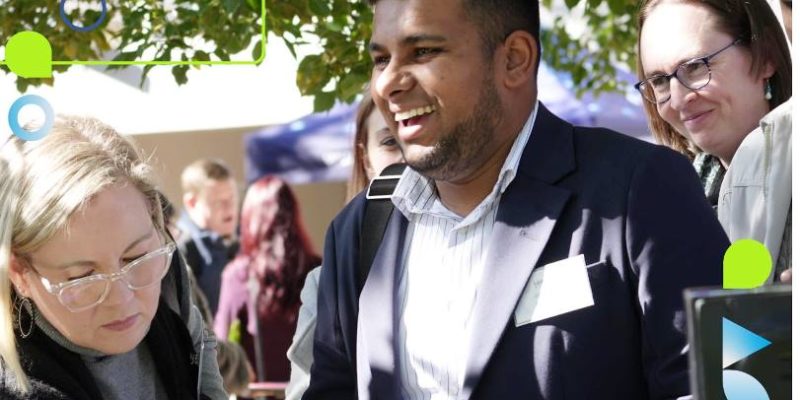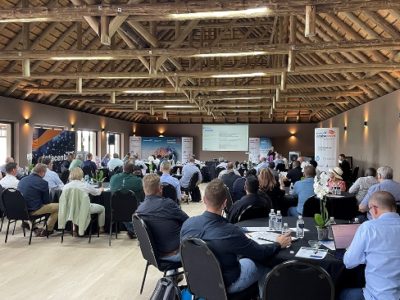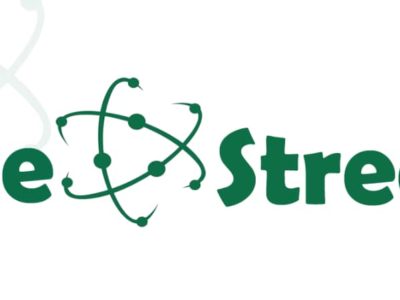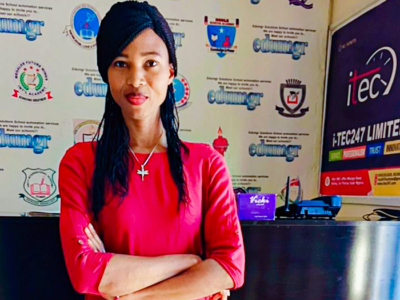The latest New Leaf Technologies Learning Indaba & Articulate Roadshow in Johannesburg and Cape Town proved a resounding success as hundreds of learning and development professionals packed the respective venues to gain valuable insights from global experts in the field.
RELATED: Free eLearning Indaba aims to inspire skills development
The events at the Bryanston Country Club and the Cape Sun Hotel were a far cry from the first Indaba in 2013, when only 12 guests attended.
The then eLearning Indaba, since rebranded as the Learning Indaba to be inclusive of all facets of education and learning, has come on by leaps and bounds in the decade since. The annual conference series now brings together a range of experts who provide insights on resources, the latest trends and best-practice methods in the eLearning space.
Not that New Leaf managing director Michael Hanly needed to hold his audience’s attention when opening the latest indaba, but channelling a block of ChatGPT content through the aNewSpring e-learning platform to create a presentation by an AI avatar certainly didn’t hurt his cause.
An address by Tom Kuhlman, Chief Learning Architect at US-based Articulate, maker of the world’s most popular apps for online learning. proved a highlight of the event as he spoke on various ways to develop successful online learning strategies.
“I always tell people that when they’re building courses, they need to have a ‘prove it’ activity. In the ideal world you want to tie e-learning to an organisation’s goals, establish clear performance expectations and provide relevant, accessible, practical learning experiences,” he said.
Crucially, L&D professionals should be careful not to lean too much towards content and sacrifice performance in the process.
“Organisations equate learning with job performance, and it can happen that your training people focus on mastery of content rather than the organisation. Ideally, e-learning and the organisation need to be aligned.”
He said e-learning solutions could have form or be more free-flowing in nature, and each had their pros and cons.
Free form, for example, offered a blank canvas and as such could be customised, but required more design and production time.
Kuhlman recommended that 80% of a solution could be built with a form-based tool, which saved time. Mini customisations could then be added as required.
Another keynote speaker, Marten de Prez of aNewSpring, gave the audience some remarkable examples of how adaptive learning, a cornerstone of modern e-learning, could be effective.
In his native Netherlands, politicians demanded that every teacher be equipped with the ability to teach the Dutch language, but this was far easier said than done.
“They were trying to promote that all teachers re-educate themselves, but it didn’t work because the teachers were not motivated,” he said.
“However, in this group of teachers, there were Dutch language teachers, so we challenged them to develop an adaptive course that was almost like a game and didn’t feel like a test. They then found the course really worked and they started promoting it among their fellow teachers. With the adaptive course, we had more participants than all the other prior initiatives.”
Adaptive learning was also applied to hospital nurses struggling to calculate dosages in Dutch hospitals.
“The big difference was 30 percent time reduction in the medical mathematics course, but we also found a positive correlation between the learning results and self-sufficiency. The increase in self-sufficiency improved safety and also wasted fewer medical supplies.”
New Leaf founder Paul Hanly thanked speakers, delegates and his team for making the Learning Indaba the success it has become today.
He said was incredibly proud that after 10 years he was able to take a step back and know that an excellent platform for knowledge-sharing had been established.

































